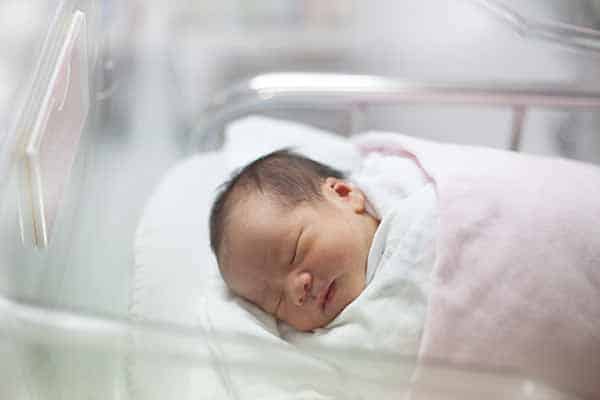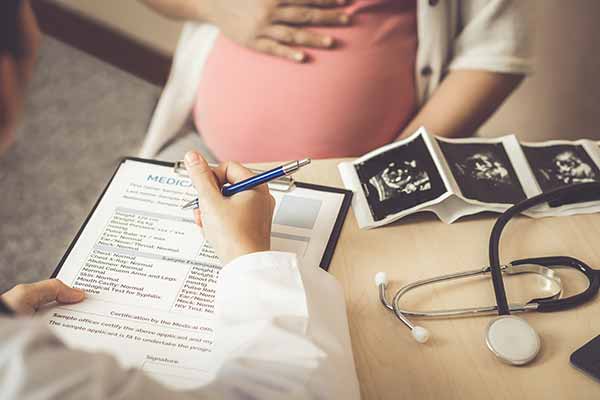Discover the most frequent causes of pregnancy and childbirth related medical malpractice and wrongful death, what legal rights you have, and what to do if you or a loved one have been harmed by hospital or physician negligence (failure to use reasonable care).
For many Georgia women, the day they find out that they are pregnant is one of the most exciting days of their lives. While most pregnancies and childbirths follow normal timelines and hit the milestones that the guidebooks, websites, and apps predict, in the infrequent instances when things do not progress as expected, women and their families are left confused, hurt, and uncertain of who to turn to.
This is never more the case than when the life or health of the mother or child was harmed as a result of medical negligence and malpractice.
No parent wants to find themselves filing a pregnancy or childbirth malpractice lawsuit, but if you believe you or a loved one has been injured by inappropriate medical care, read on to educate yourself about the most common instances of preventable injury during pregnancy and labor.
What Happens When a Physician and/or a Hospital Increases Trauma to a Mother or Baby?
While the process of childbirth always causes the mother some degree of trauma, when the care that a physician and hospital are supposed to offer increases that trauma rather than minimizes it, especially when it might have been prevented altogether, the physician and hospital might be guilty of medical negligence.
Preventable pregnancy- and birth-related injury and the malpractice that causes it can occur when:
- doctors and hospitals choose an inappropriate course of treatment,
- when they overlook indications of complications,
- or when they do not use appropriate care or skill while treating mother or child or both.
Out of every 1000 live births in the United States, approximately 7 involve a birth injury. This means that approximately 28,000 birth injuries occur in the United States each year.
While medical malpractice during pregnancy and childbirth is rare, birth-related negligence on the part of physicians and hospitals is one of the leading causes of medical malpractice lawsuits today.
Instances of medical negligence can occur in the care and treatment of both mother and child, and they can occur during both pregnancy and labor and delivery. Some causes of harm to the mother or child are congenital and would occur regardless of hospital or physician intervention.
However, certain injuries occur specifically as a result of a physician or hospital interfering inappropriately or failing to act with an appropriate degree of skill, timeliness, or care.
The sections that follow detail the most frequent causes of medical malpractice during pregnancy and childbirth.

Negligence During Pregnancy
Injury to a mother or her baby can happen at any point in the nine months leading up to labor and delivery, often as a result of circumstances that cannot be prevented, but also as a result of physician or hospital negligence.
When physicians fail to recognize or respond appropriately to signs of serious problems during routine appointments, the consequences can be dire for both mother and child. The most frequent causes of negligence during pregnancy include:
- Failure to monitor for, recognize, or respond to signs of fetal distress
- Failure to appropriately recognize and respond to problems with the umbilical cord, placenta, or uterus
- Failure to appropriately or adequately respond to an abnormal fetal presentation, such as when a baby is positioned feet down
- Failure to monitor for, recognize, or respond to maternal blood loss and corresponding anemia
- Failure to monitor for, recognize, or respond to maternal infection
- Failure to recognize or take appropriate or adequate precautions in a high-risk pregnancy, a pregnancy presenting with factors such as gestational diabetes, preeclampsia, maternal obesity, maternal infection, or advanced maternal age
Negligent care such as the above can result in serious maternal or fetal injury and even lead to maternal or fetal death before labor and delivery. These scenarios often lead physicians and hospitals into higher risk scenarios during labor and delivery, which dramatically increases the risk of injury during childbirth itself.
Negligence During Labor
While some of the dangers to mother and child during labor and delivery are consequences of physician negligence during pregnancy, many other threats are unique to the experience of childbirth itself.
Once labor begins, the causes of physician and hospital negligence that most often lead to injury during pregnancy continue to increase risks to mother and child during labor and delivery, including
- Inadequate monitoring of mother and baby and failure to recognize and respond to maternal or fetal distress
- Failing to properly assess risks to mother and baby
- Neglecting either the mother, the baby, or both
- Failure to follow up after delivery
This sort of negligence can often result in harmful delays in performing a c-section or failing to perform a required c-section altogether, failure to induce, and delayed delivery. Delayed delivery often results in damage to the baby as a result of oxygen deprivation (hypoxia).
Medication errors, including over-medication for the mother can also happen during delayed delivery. This is when practitioners rely too heavily on drugs like Cytotec or Pitocin.
Problems arise during childbirth most often under the following circumstances, according to Stanford Children’s Health:
- The baby is large
- The baby is not head-first in the birth canal
- The baby is born prematurely
- The mother’s pelvis is not large enough or shaped appropriately for a normal vaginal birth
- Labor is difficult or drawn out
- The mother is overweight
- Devices like a vacuum or forceps are used in delivery
While these characteristics do not guarantee physician or hospital negligence, they make childbirth more complicated and therefore increase the likelihood that malpractice can occur.

Dangers to the Infant During Childbirth
Typically, injury to babies during delivery fall into several different categories: bone or nerve damage, neurological damage, and bleeding and bruising.
The most frequent injuries to babies’ bones and nerves during delivery include:
- Fractures
- Brachial Plexus, Erb’s Palsy, Klumpke’s Palsy
- Shoulder Dystocia
- Spinal cord injuries
- Facial Nerve Injury
Labor and delivery can also result in a number of neurological injuries, including:
- Cerebral Palsy
- Perinatal Asphyxia
- Brain Hemorrhages
- Hypoxic-Ischemic Encephalopathy
Finally, babies can also suffer from extensive bruising and subcutaneous bleeding, often as a result of obstetricians using forceps or a vacuum to deliver the infant:
- Caput Succedaneum
- Cephalohematoma
- Subconjunctival Hemorrhage
- Swelling of the head
Dangers to the Mother During Childbirth
As many injuries potential await expectant mothers during childbirth as await their children. Most often, maternal injuries during childbirth can be classified into four different categories:
- vaginal, uterine, and perineal injury, most frequently in the form of vaginal tears, episiotomy, pudendal neuralgia, hemorrhoids, ruptured uterus, prolapsed uterus, or postnatal hemorrhaging
- pelvic floor injury, including stretched or torn muscles in the pelvic floor and pelvic organ prolapse
- broken bones, including a fractured coccyx or separated pubic symphysis
- and psychological trauma, which can include postnatal depression, or postnatal traumatic stress disorder
Clearly, each of these injuries could naturally occur during childbirth. While experiencing any of them does not necessarily indicate that mother or baby are victims of medical negligence, they do warrant careful reflection on the treatment both mother and baby received while in the care of their doctors and their hospital.
How Marks Law Can Help
Thankfully, there is restitution and a path forward for victims of pregnancy- and childbirth-related injury, mortality, and malpractice. If you believe you or a loved one have experienced medical malpractice during pregnancy or childbirth, you are empowered and entitled to be made whole under the law. At Marks Law Group, LLC we understand that navigating a medical malpractice lawsuit can be confusing and time consuming, especially when you have a newborn to care for.
At Marks Law Group, we can help you begin to find your new normal after pregnancy and childbirth. We will carefully investigate and build your case meticulously. Call us today at (678) 251-9309.